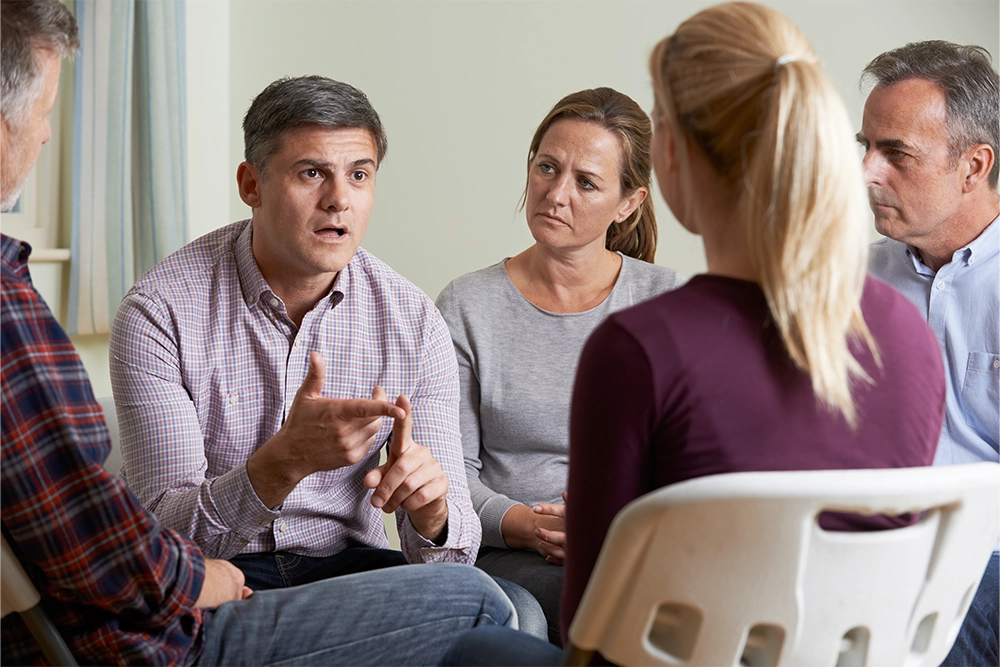24/7 Helpline:
(866) 899-111424/7 Helpline:
(866) 899-1114
Learn more about Couples Rehab centers in Bay County

Other Insurance Options

Optum

Choice Care Network

Health Net

MHNNet Behavioral Health

State Farm

Humana

CareFirst

GEHA

Sutter

Self-pay options

EmblemHealth

American Behavioral

Premera

Meritain

WellPoint

Absolute Total Care

Optima

MVP Healthcare

Sliding scale payment assistance

BlueShield

List Psychological Services
List Psychological Services is a private group practice specializing in behavioral health care; incl...

Sacred Heart Rehabilitation Center
Sacred Heart Rehabilitation Center is a private rehab located in Bay City, Michigan. Sacred Heart Re...

Bay Psychological Associates
Bay Psychological Associates is a private rehab located in Bay City, Michigan. Bay Psychological Ass...

RU Recovery Ministries – Peoples Baptist Church
RU Recovery Ministries - Peoples Baptist Church is a faith based program designed to help individual...























































































DOT Caring Centers
DOT Caring Centers is a private rehab located in Bay City, Michigan. DOT Caring Centers specializes ...

Bridge Water Substance Abuce Counceling
Bridge Water Substance Abuce Counceling is a private rehab located in Bay City, Michigan. Bridge Wat...

Family Hope Center
Family Hope Center is an outpatient rehab located in Bay City, MI. Bay Area Consultants - Family Hop...

Neighborhood Resource Center
Neighborhood Resource Center is a private rehab located in Bay City, Michigan. Neighborhood Resource...

Michigan Behavioral Health Institute
Michigan Behavioral Health Institute is a private rehab located in Essexville, Michigan. Michigan Be...

Recovery Pathways
Recovery Pathways is a private rehab located in Bay City, Michigan. Recovery Pathways specializes in...

Foster Reagh Rehabilitation Consultants
Foster Reagh Rehabilitation Consultants is a private rehab located in Bay City, Michigan. Foster Rea...

Arenac Behavioral Health
Arenac Behavioral Health is a public rehab located in Bay City, Michigan. Arenac Behavioral Health s...

Alcoholics For Christ – In His Presence Ministries
Alcoholics For Christ - In His Presence Ministries is located in Bay City, Michigan. Alcoholics For ...






























































